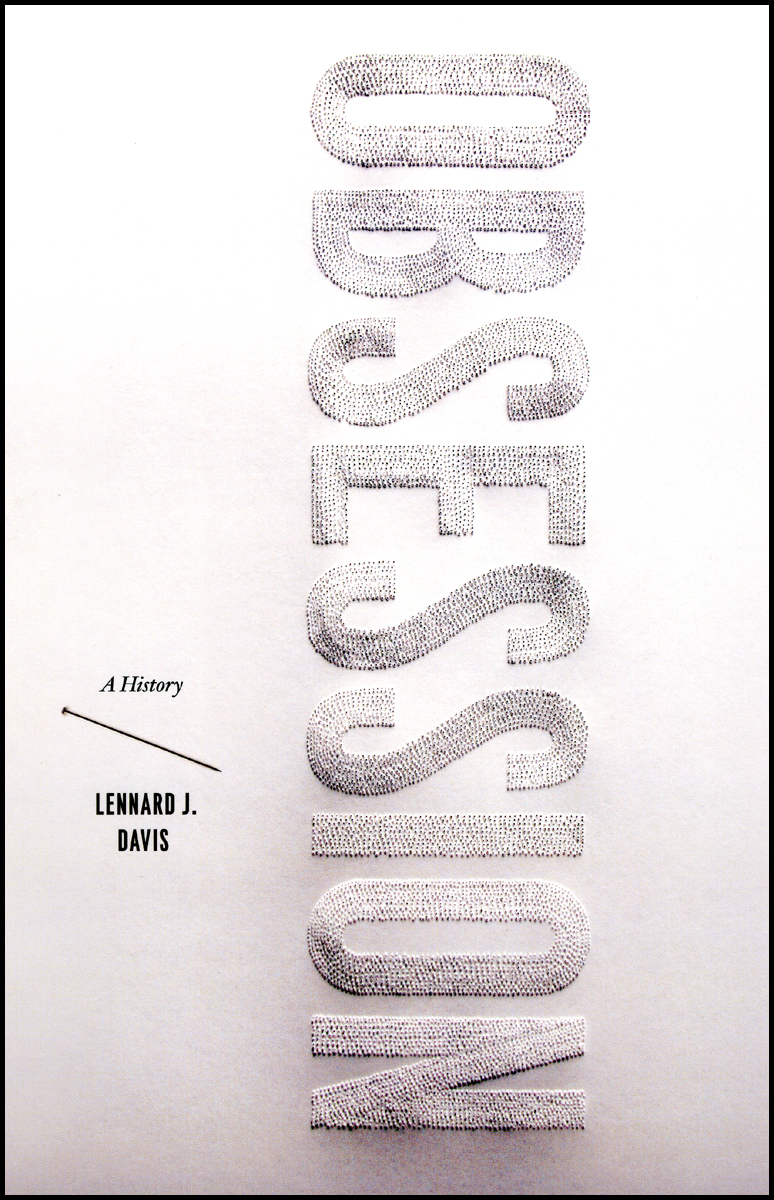Sex addiction: The truth is out there
 A story on sex addiction in the Style section of Sunday’s New York Times caught our eye this weekend, so we asked our resident expert on obsessive behaviors, Lennard Davis, author of the forthcoming Obsession: A History, to weigh in on the phenomenon:
A story on sex addiction in the Style section of Sunday’s New York Times caught our eye this weekend, so we asked our resident expert on obsessive behaviors, Lennard Davis, author of the forthcoming Obsession: A History, to weigh in on the phenomenon:
Actor David Duchovny, who plays a sex-addicted writer in the TV series Californication, just checked himself into Meadows Rehab in Arizona for being, well, sex addicted in real life. This story is more than just one about life imitating art, it is also about sex addiction imitating drug and alcohol addiction.
While there are a growing number of people who believe you can be addicted to sex—just as you can be addicted to shopping or to work—many psychological practitioners would disagree. Indeed, sex addiction is not currently in the DSM, the standard diagnostic manual for psychiatric disorders. Addiction, according to that guide, has to be an addiction to a substance. If you’re an alcoholic, it’s booze; if you’re a drug addict, it’s heroin or Percodans. But if you’re addicted to sex, what exactly is the substance?
In this age of brain chemistry, some argue, without any serious laboratory proof, that you are addicted to your own neurotransmitters. They claim that sex produces dopamine, seratonin, and oxytocin—and some people get addicted to those chemicals. But the argument is specious—is someone who is happy addicted to their own seratonin? Or are nursing mothers addicted to prolactin? Can you be addicted doing, as the song says, “what comes naturally?” To understand the craze to explain behaviors like infidelity, sex with multiple partners or prostitutes, or simply serial one-night stands as medical phenomena, you need to take a long look at how America deals with obsessive behavior.
In order know if a behavior is obsessive or excessive, you have to come up with what normal sex might look like. There is a long and hopeless history of specialists trying to establish those norms—from Victorian ideas about the dangers of masturbation and promiscuity to statistical analyses by Masters and Johnson to a late 20th century notion that anything between consenting adults is normal. But throughout, in repressive or progressive times, people have tried, and failed, to come up with what would be sexually normal—normal in terms of frequency, object of desire, and intensity.
Somewhere in the post-sixties world, sex addiction was invented. The founders of the idea were called, and still are, Sex and Love Anonymous. For them sex addiction is a “progressive illness” that cannot be cured but only be arrested. Using the language of Alcoholics Anonymous they want to remain sexually “sober.” If you read through their forty questions for self-analysis, you’ll find it hard to understand where the line is drawn between the cultural goal of being in love and having a lot of sex and the medical goal of cure or 12-step aim of sobriety.
The Meadows Rehab, where Duchovny is now getting sexually sober, is the end result of a popular movement to define and treat sex addiction. Its senior fellows are listed as: Pia Mellody, author of Facing Love Addiction and Breaking Free, Claudia Black, author of It will Never Happen to Me and Changing Course, and Patrick Carnes, author of Out of the Shadows and The Betrayal Bond. None of them are medical doctors but what they all share in common is that they wrote best-selling books on addiction, sex addiction, and co-dependency. In other words, sex addiction was invented by a self-help group aided by popular books. It is trying now to move over into a medical condition. One way is to abandon the addiction model and move over to a compulsion model. Compulsive behavior is listed in the DSM as part of OCD. And new journals in the field combine both as in Sexual Addiction and Compulsivity: the Journal of Treatment and Prevention. Compulsivity gets the issue out of the demotic 12-Step programs where it began and into the psychiatrist, therapist, and mental-health practitioner’s office.
But is sex addiction a real thing? It’s real in the sense that people say they have it. But it is invented in the sense that how much sex you have, how happy you are with that, how guilty you feel about what you do in the dark with whom are all heavily subject to culture and morality. Our culture is, after all, obsessed with sex, and obsessed with controlling sex. Sex addiction is the perfect poster boy to embody that dichotomy.
Obsession: A History will be published in November.